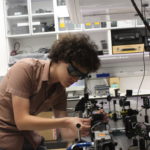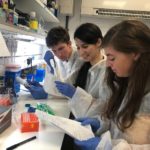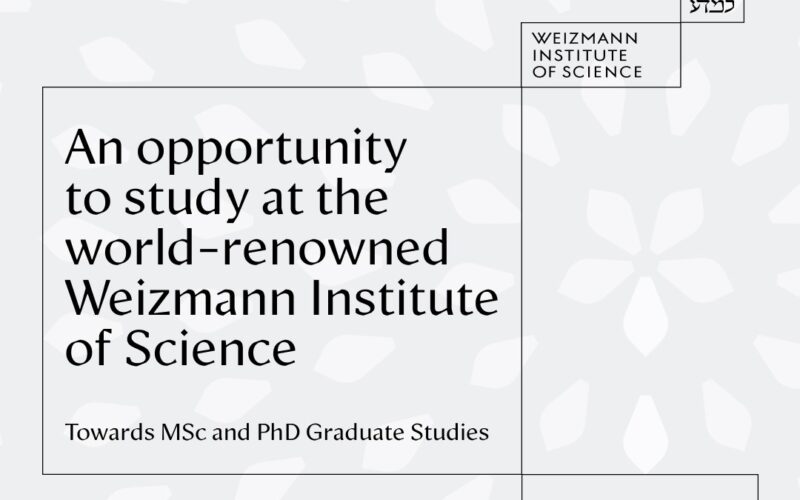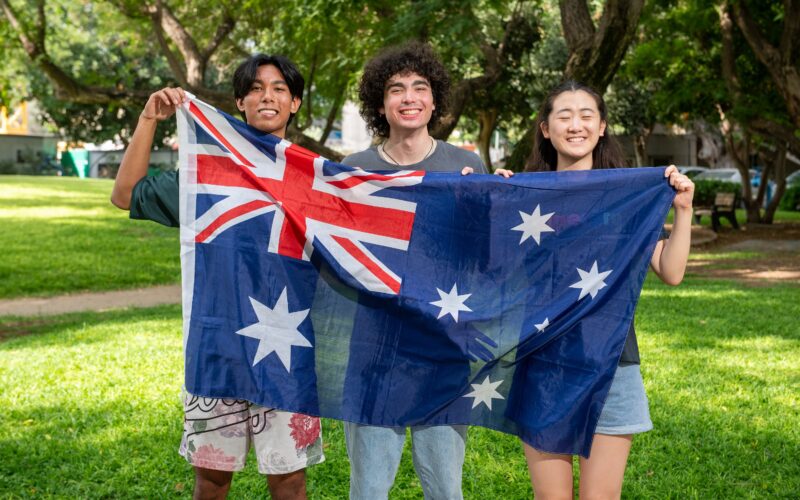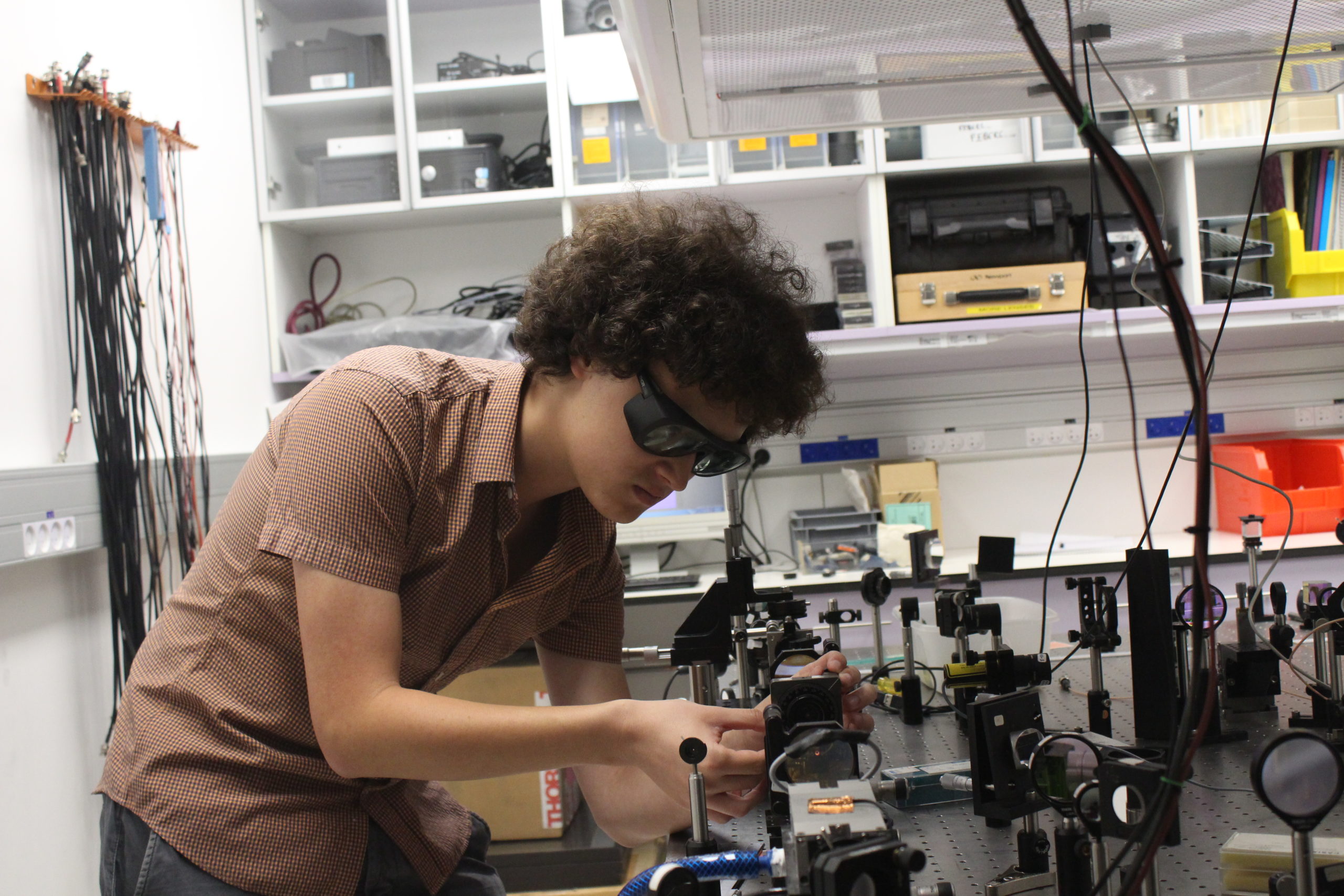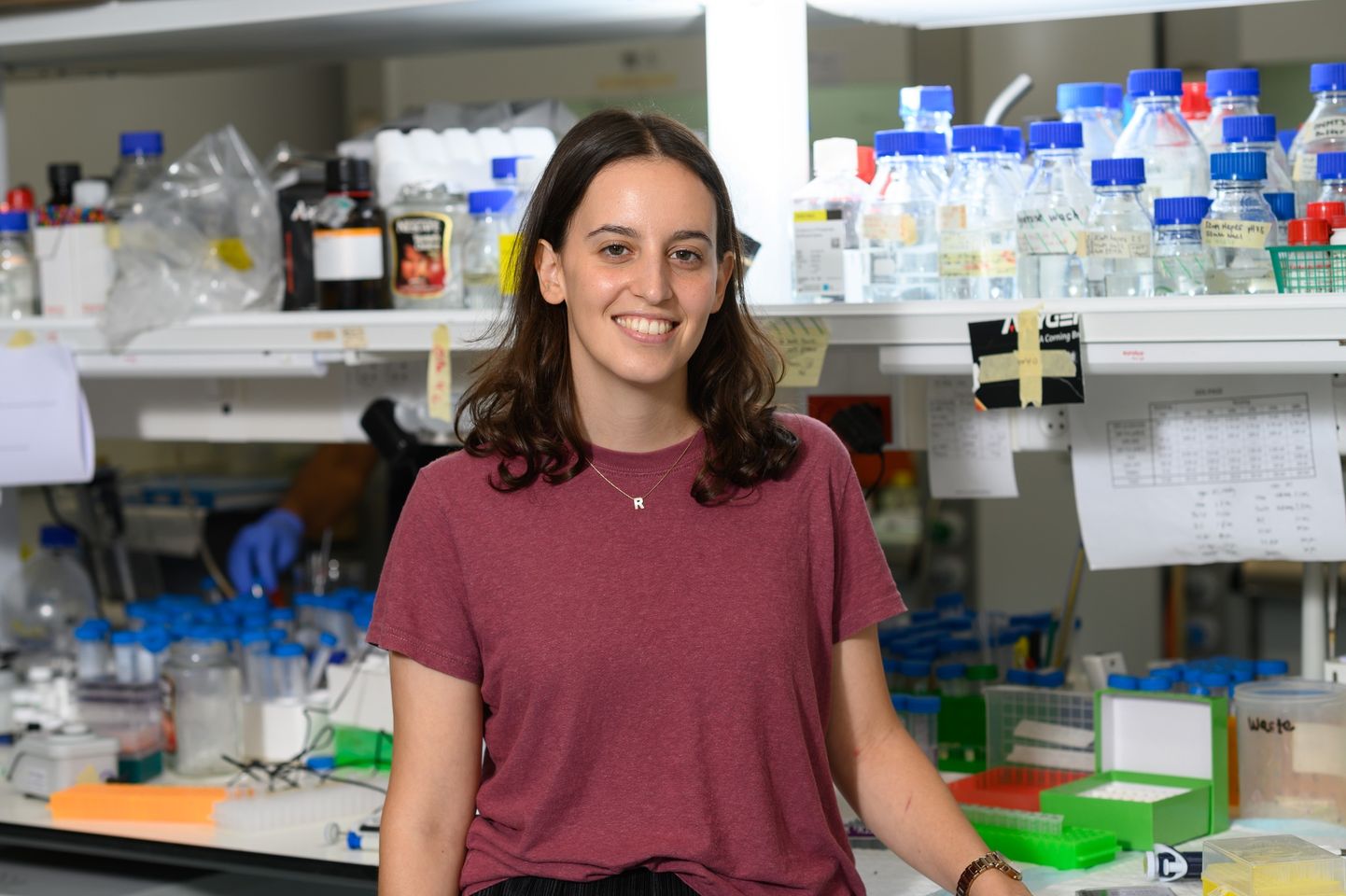
March 22, 2023
Can we predict our own future? For Australian scientist, Rebecca Hertzman, currently undertaking her Masters of Science in chemical biology and drug discovery at the Weizmann Institute of Science in Israel, this seems to be the case.
When visiting the Weizmann campus on a family trip to Israel in 2013, she reportedly exclaimed: “One day I’ll go here!” Now, 10 years later, this is exactly where she is.
Rebecca recently caught up with Weizmann Australia to report on her current life working and studying at Weizmann; why she chose science; her ambitions for the future; and the vast differences between taking a Masters at Weizmann in Israel from universities in Australia.
Born and raised in Perth, Rebecca went to Carmel School from kindergarten to her graduation year. According to Rebecca, academia is a strong focus at Carmel with science studies “high on the agenda”, so it was a natural progression go to University and beyond. Plus science is in her blood, with her grandfather, Dr Barry Saker, being a nephrologist in Western Australia, and at age 88 is still consulting at Royal Perth Hospital and teaching at the Notre Dame Medical School.
Before Weizmann, Rebecca completed a Bachelor of Science (Pharmacology) and a Bachelor of Biomedical Science (First Class Honours) at the University of Western Australia, working in the Harry Perkins Institute of Medical Research. Her honours thesis was entitled: Minimal G proteins as a tool for exploring changes in G protein recruitment by the AT1-B2 and AT2-B2 receptor heteromers. This was followed by a BioDesign for Digital Health Course in 2020.
It was in October 2021, after successfully applying to complete her Masters at Weizmann, she arrived in Israel, initially living on campus with other international students, then moving out with a fellow female student to live in Tel Aviv and commute.
Weizmann, Rebecca explained, is a huge science campus compared to universities in Australia; knowledge and equipment is shared and international students have many opportunities to learn and try other things – such as Hebrew, art and poetry – while enjoying multicultural interactions.
“In terms of Campus resources these are limitless, the equipment is top of the range where you can always find what you need and everyone is willing to help. In Australia, I didn’t find this to be the case, where accessing new, first-class equipment was a process because funding was always an issue,” she said.
“As an international student the accommodation is excellent and apart from science, there are many extracurricular things to do. I learn Hebrew and enjoy art classes for example. I also really enjoy the grounds at Weizmann, which are beautiful and I soak up at every opportunity.”
But what about the science? Rebecca’s work is focussing on developing drug modalities designed to make humanity better prepared to combat future pandemics. This is done using as part of the AI-Driven Structure-Enabled Antiviral Platform (ASAP) collaboration, which her MSc proposal states: “intends to accelerate medicinal chemistry via an open-access, machine-learning based pipeline, from target identification to fragment-to-lead screening to optimisation to preclinical development”. She is currently working in the laboratory of Dr Nir London of the Department of Chemical and Structural Biology.
“In the laboratory we are studying ways to inhibit cysteine and serine proteases that enable viral replication of mosquito-borne flaviviruses Zika, Dengue and West Nile, coronaviruses MERS and SARS-2, and the enterovirus A71,” Rebecca explained.
“Such proteases are promising drug targets due to being essential to the virus, and are of particular interest to us in the lab because of their propensity to covalently bond with small molecules, conferring selectivity and potency,” she said.
“Our ultimate goal in the collaboration is to have Phase II ready compounds before the next pandemic to allow for immediate clinical trials and rapid pandemic response.”
At the end of February 2023 Rebecca produced her first Weizmann poster presentation at the Ilanit Conference in Eilat reflecting her Weizmann work. Read her abstract here.
Apart from the great resources and vast science campus, Weizmann Australia asked Rebecca how she funds her studies and living expenses. The answer was very different from one Australian students would provide.
“The structure here is different from Australia: I am paid a stipend, enough to support my needs here and there are no fees to pay, Weizmann pays you for your work. The attitude here is that research is your work and focus, instead of needing another job to pay for your tutorial fees and living expenses,” she said
“There will be no long term payments to the government for my time here, my work is respected and paid for, something for which I am truly honoured and grateful,” said Rebecca.
Upon reflection of her time at Weizmann so far, Rebecca sees nothing but positives.
“In my first year at the Institute I have learned and experienced many different approaches to research. I’ve met a lot of great people, both international and Israeli. This is a great way to immerse yourself in the country,” she said.
As for the future, Rebecca has her sights on staying in Israel, with the next step – a doctorate at Weizmann. She also has an Israeli fiancée: another great incentive to stay!
“Once my Masters is complete at the end of the year, I’ll hopefully return to Australia for a visit and catch up with family and friends, then my mind will be focussed on my PhD and next steps. I am very excited about the future,” she said.
Weizmann Australia wishes Rebecca all the best in her career and we will follow it with interest. So watch this space!
If you are interested in finding out more about studying at Weizmann please email Dr Kirsten Shteinman at [email protected]
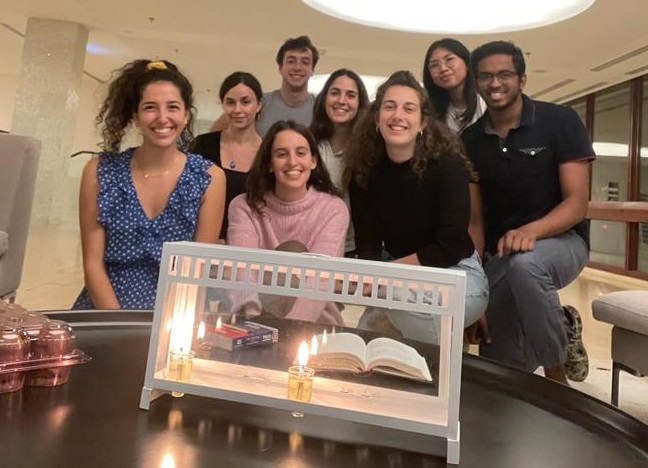
Channukah celebrations with other international students
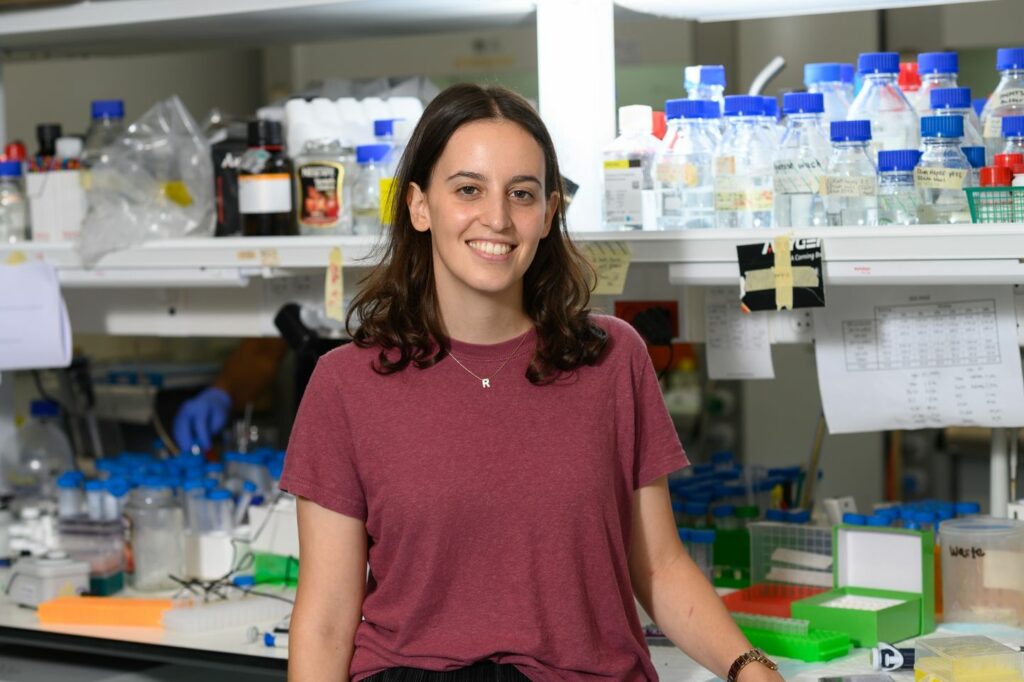
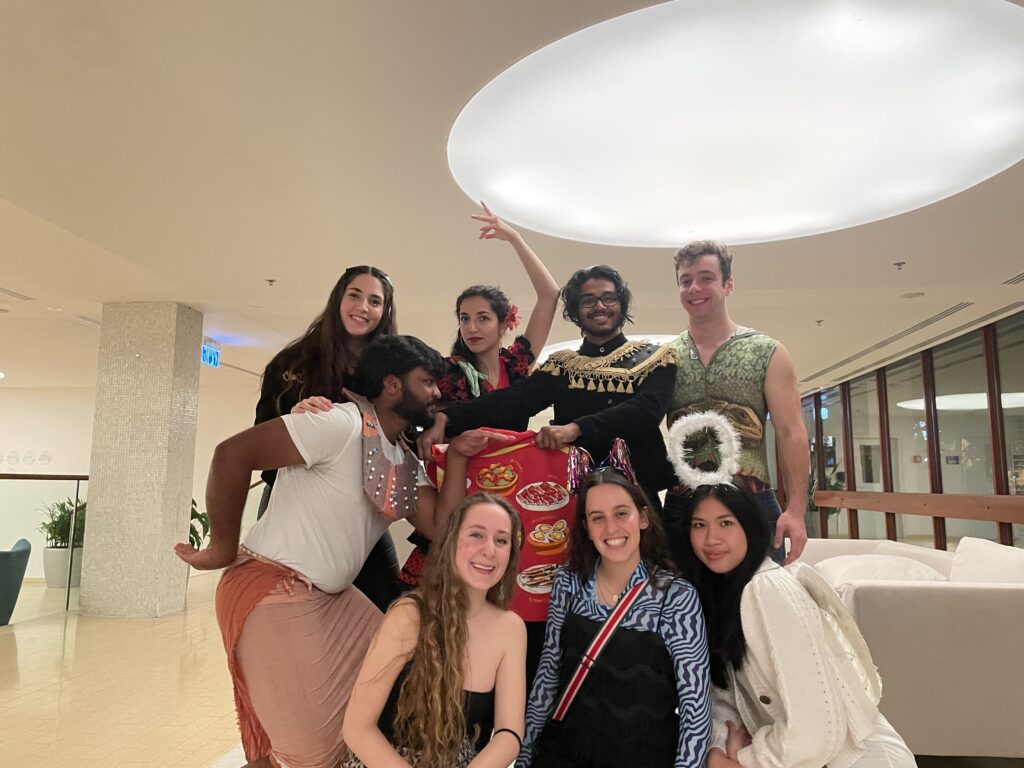
Having fun with other students from around the globe on Purim!

